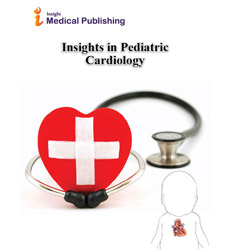Abstract
Beraprost as initial pharmacologic treatment for pulmonary hypertension related to left to right shunt congenital heart disease: A preliminary study
Pulmonary arterial hypertension is a common complication of uncorrected left-to-right shunt congenital heart disease. Beraprost have been used widely to treat pulmonary arterial hypertension in adult. However, the efficacy of the drug in Indonesian children has not been investigated. This study aim is to evaluate the efficacy of Beraprostin treating pulmonary arterial hypertension related toleft-to-right shunt congenital heart disease. A randomized controltrial was used in this study between April to September 2017 in Cardiology outpatient clinic of Dr. Soetomo General Hospital. Subjects aged 2-12 years with pulmonary arterial hypertension randomly received Beraprost 0.35mcg/kg eight hourly for 12 weeks. Efficacy was evaluated by echocardiography and adverse effect was monitored. Data were analyzed by statisticals of tware using t-test and Mann Whitney test with significance level set to 0.05. All procedures were approved by hospital ethics committee and registered at the Clinical Trials.gov. Twenty two children were recruitedin to the study. Resolution of Beraprost in decreasing pulmonary arterial pressure was -21.32 ± 11.06 mmHg (p = 0.034). Adverse effects reported were headache. As conclusion, Beraprostis effective and safe as initial pharmacologic treatment in treating pulmonary arterial hypertension related to left to right shunt congenital heart disease.
Keywords: Beraprost, pulmonaryarterialhypertension, congenitalheartdefect, left-to-rightshunt
Author(s):
Shirley Ferlina Lasmono, Mahrus A. Rachman, Ketut Alit Utamayasa and Teddy Ontoseno
Abstract | PDF
Share this

Google scholar citation report
Citations : 5
Insights in Pediatric Cardiology received 5 citations as per google scholar report
Insights in Pediatric Cardiology peer review process verified at publons
Abstracted/Indexed in
- Google Scholar
- Secret Search Engine Labs
Open Access Journals
- Aquaculture & Veterinary Science
- Chemistry & Chemical Sciences
- Clinical Sciences
- Engineering
- General Science
- Genetics & Molecular Biology
- Health Care & Nursing
- Immunology & Microbiology
- Materials Science
- Mathematics & Physics
- Medical Sciences
- Neurology & Psychiatry
- Oncology & Cancer Science
- Pharmaceutical Sciences

